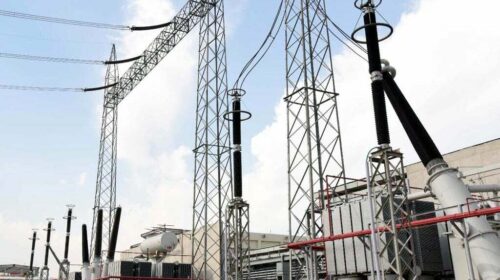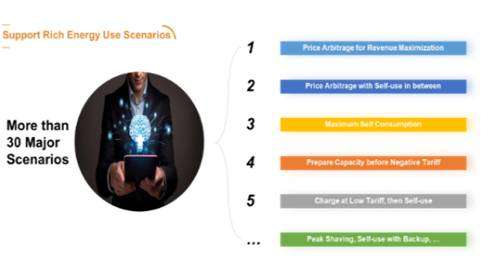The Ex-Wapda Discos (XWDiscos) have caused a loss of Rs292 billion during financial year 2021-22 to the national exchequer on account of T&D losses and less recoveries, as NEPRA has termed the performance of power distribution companies throughout FY 2021-22, saying that under the given circumstances, the existing Discos set up would not be able to deliver. In its performance evaluation report of the XWDiscos and Thermal Power Plants for FY 2021-22, released here by NEPRA, said that the number of fatalities both for employees and public occurred in all distribution companies were 196 which is around 11 percent more than the previous year. The highest number of deaths occurred in PESCO (39) followed by HESCO (35), IESCO (27) and K-Electric (27) during FY 2021-22. Further it is observed that most of the fatalities of these distribution companies pertain to general public. Similarly, the lowest number of deaths occurred in FESCO followed by MEPCO and QESCO. NEPRA has concluded that the performance of Discos throughout this period remained below par and power sector reforms could not be achieved. Keeping in view the continuous poor performance, it is evident that under the given circumstances, the existing Discos set up would not be able to deliver. To overcome the performance deficiency, National Electric Power Regulatory Authority (NEPRA) has recommended that structural changes at mega scale such as closure of PPMC, bifurcation of large Discos, provincialisation of Discos, privatisation/ corporatisation of Discos and reduction of union’s influence are required. On T&D losses the regulator said overall, the financial loss born by the national exchequer in FY 2021-22 due to breach of NEPRA targets by the distribution companies i.e. is around Rs122.6 billion. It is pertinent to highlight that PESCO has contributed highest among all followed by SEPCO. As far as PESCO, SEPCO, QESCO and HESCO are concerned, it is seriously observed that these four Discos have heavily burdened the national exchequer in terms of Rs64 billion, Rs21.4 billion, Rs18.6 billion and Rs14 billion, respectively. Discos like GEPCO, FESCO, MEPCO and K-Electric who have achieved the NEPRA targets have reduced the burden of national exchequer in terms of Rs1.1 billion, Rs0.64 billion, Rs0.90 billion and Rs2.15 billion, respectively. Similarly, IESCO which is almost near to NEPRA figure has little bit contributed in financial loss of around Rs0.22 billion. Regarding LESCO, it is noted that the breach of target seems not so high i.e. 2.42 percent, but the financial impact is on higher side i.e. Rs9.3 billion. Similarly, with respect to recovery, it is observed that none of Discos have achieved the target of 100 percent recovery which has resulted into fiscal deficit. Taking a closer look, it is noted that three Discos i.e. GEPCO, FESCO and MEPCO have nearly missed the target as they have reported more than 99 percent recoveries. Similarly, PESCO, IESCO, LESCO and K-Electric have also crossed the figure of 90 percent. HESCO and SEPCO remained in some where middle with the reported values of 75 percent and 64 percent, respectively. However, QESCO has performed worst in this regard as its recovery position remained very poor i.e. only 35.4 percent. In FY 2021-22, around Rs2,517 billion were collected against billed amount of Rs2,686 billion. Hence, a total loss of around Rs170 billion has to be suffered by national exchequer for FY 2021-22. In this regard, the highest contributor is QESCO followed by SEPCO and HESCO. It is evident that less recovery of such huge amount has mainly contributed in increasing the circular debt of Pakistan. None of the distribution companies has met with SAIFI and SAIDI. IESCO, GEPCO, FESCO, LESCO, MEPCO and K-Electric are near to the SAIFI targeted value. Whereas, PESCO, QESCO, SEPCO and HESCO are far away from the limits set by NEPRA to achieve the desired level of reliability. Similarly, almost all Discos are far away from the NERPA set target of SAIDI. GEPCO is near to the limit as it has submitted that its consumer experienced 39 min duration of outage on average basis in FY 2021-22 which seems not practical. On new connections, the regulator said that IESCO, LESCO, MEPCO, SEPCO and HESCO have provided the connections more than 95 percent of its eligible consumers and met with the specified limit. However, QESCO, GEPCO, FESCO and K-Electric remained away from the target set by NERRA. They did not provide the new connections to 32.4 percent, 20 percent, 15.5 percent and 10.6 percent, respectively of eligible consumers within the specified time frame despite the fact that these consumers had made the payment within time. The report for the month of December, 2021 revealed alarming figures pertains to pending ripe connections and the authority was observed that around 500,000 number of connections were pending due to a load of 1,870MW could not be injected. The authority took serious notice and directed to initiate legal proceedings against Discos. As a result of that, around one million new connections were provided to the eligible consumers and a total load of more than 3,000MW was served. As per the data provided by XWDiscos, the average loadshedding increase in Discos from 1.26 hours in 2017-18 to 3.4 hours in 2021-22. The average load-shedding timing is increased in PESCO, IESCO, QESCO, HESCO, and K-Electric. The figures reported by the Discos are not based on ground realities. Except PESCO, QESCO and HESCO, all other Discos represent that they carried out loadshedding for averagely 1 to 3 hours on daily basis which is far away from ground facts as major part of FY 22 remained under power generation crises due to fuel constraints. It is further observed that Discos are deliberately drawing less power as compared to their demand despite fact that they are being provided sufficient quota and carrying out load-shedding as per AT&C losses policy which is in clear contradiction with NEPRA Act and Performance Standards Rules. The data related to T&D losses, recovery and AT&C losses was obtained from Discos for last four years and after thorough examination, it was assessed that no significant improvement has been made by the Discos, especially PESCO, QESCO, HESCO, SEPCO and K-Electric. It is noted that the highest number of complaints pertaining to voltage fluctuations were received by K-Electric followed by PESCO and GEPCO i.e. 164,505, 24,594, and 10,600, respectively. Similarly, the lowest number of complaints were reported by SEPCO and HESCO i.e. 1,087 and 183, respectively, which seems not based on factual position. This shows two possibilities either HESCO and SEPCO have not proper complaint handling mechanism so that maximum number of consumers can register their complaints or there is no proper data base system. In its report on thermal power plants, the regulator said that the net-generation of most of the inefficient and expensive RFO based power plants remained less during the said period; however, since the tariff structure of these plants is on “Take or Pay” basis, therefore, the average per unit rate (CPP+EPP) of these plants remained considerably higher during the said period. For e.g. the average per unit rate of HUBCO, Saba, PakGen and Lalpir remained Rs44.14/kWh, Rs33.24/ kWh, Rs31.12/kWh and Rs30.14/ kWh, respectively, during the FY 2021-22. The data submitted by thermal power plants for the FY 2021-22 shows that most of the efficient and cheaper natural gas, RLNG and coal based power plants remained in operation for most part of the year during the FY 2021-22. For e.g. Bhikki, Balloki, Haveli Bahadur Shah, Uch, Uch-II and Port Qasim remained in operation for more than 80 percent of the total time during the said period. Whereas, most of the comparatively inefficient and expensive RFO based power plants remained in operation for less part of the year during the FY 2021-22. For e.g. TPS Muzaffargarh and TPS Jamshoro remained in operation for only 3 percent and 7.5 percent of the total time, respectively, during 2021-22.
XWDiscos cause Rs292b loss to national exchequer during FY 2021-22







